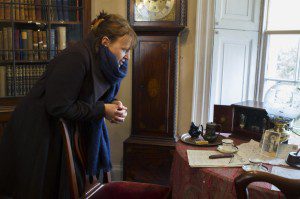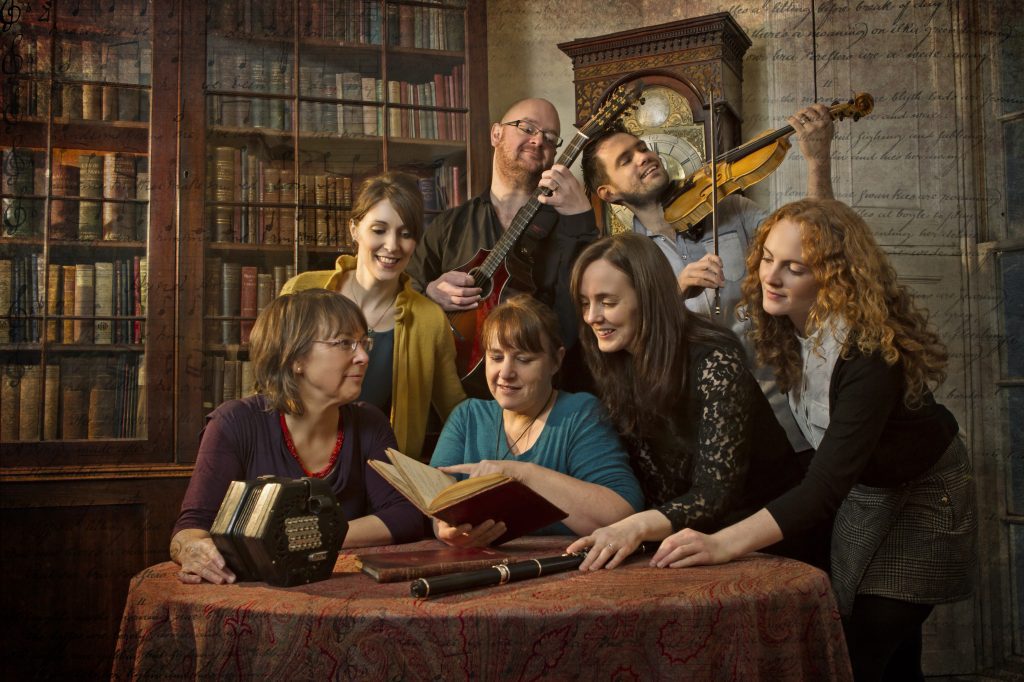A rare collection of little-known Scottish songs will be brought back to life in a remarkable project specially commissioned by the Dumfries & Galloway Arts Festival.

Ten years ago, award-winning Castle Douglas songwriter and community choir director Ali Burns came across the William Macmath collection of songs held by The National Trust for Scotland at Broughton House in Kirkcudbright.
The archive was owned by Glasgow Boy Edward Hornell when he lived in the house at the turn of the 20th century. The works were penned by Galloway man Macmath while he was helping the great American ballad collector and academic, Francis Child, produce his definitive work English and Scottish Popular Ballads 1882 to 1898.
Inside the fragile pages of Macmath’s personally scripted notes, were two books of unpublished songs and song fragments. It is these two volumes that the project is focusing on.
Ali said: “Many of the songs may not have been sung for a hundred years or more and the broad scope of this project is to sing the collection back to life.
“Some of the songs in the collection are just small fragments of songs. You get the impression that Macmath was very meticulous in his research and wrote down everything he knew or found out – sometimes just one verse of a song that differed slightly from other versions he’d already found.”
In order to move the project forward, Ali approached some of the region’s top traditional Scots musicians – Emily Smith, Jamie McClennan, Robyn Stapleton, Allan Jones, Claire Mann and Wendy Stewart.

She said: “We decided that our criteria for this project is about making a collection of singable songs with good arrangements and to make that we are allowing ourselves the freedom to edit and tweak songs.
“We’re coming at it as musicians who are singing the collection back to life rather than academics striving for ‘correct’ versions.”
The fragments of some of the songs, with missing lines and tunes, were revisited last year by two eminent Scottish ballad experts.
Ali explained: “I called on Scot’s song experts and singers Geordie MacIntyre and Alison MacMorland to come and have a look
“We spent several days pouring over the books and with growing excitement I listened to what they had to say – there were some unique songs and song fragments along with many unusual and rare versions of songs. And with their huge knowledge of Scot’s song they were able to come up with tunes or likely tunes for many of them.”
The musicians have all been allocated a list of songs which they will be working on over the coming months. They will be composing tunes, filling in missing lines and sympathetically restoring the works in preparation for performing them next year.
The work around the collection Is expected to take a variety of forms and involve the broadest spectrum of the community: exhibitions, residential study breaks, schools workshops, competitions, singing workshops, publishing the collection in various forms and in inviting and commissioning musicians to choose and arrange songs.
Ali hopes musicians and artists from all over Scotland will use the collection as inspiration and bring more people – especially local people – into Broughton House; raise awareness of the unique value of the collection locally, nationally and internationally and develop it into a focus for cultural tourism.
Moreover, the project will celebrate the work of William Macmath and put it into a national and international context.
“This project has the potential to be wide reaching and far sighted,” Ali explained.
“It’s about acknowledging Macmath’s work in its own right, not just as the assistant of Francis Child.
“It’s about linking people back to their roots and achieving a sense of place. It’s about celebrating the creativity of reinvention demonstrated so perfectly by Robert Burns and the legacy that we, the people of Galloway and Scotland inherit from that.
“But mostly, it’s about breathing new life into a paper-based collection and making those songs sing again by putting them into the repertoire of Scotland’s leading traditional musicians; of the pub singing and traditional session scene; of choirs and singing groups; of schools and school based music groups; of researchers and archivists and of the wider community.
As part of the 2015 Dumfries & Galloway Arts Festival, the work on the project will then culminate in the world premiere of Macmath: The Silent Page in Stranraer on Tuesday, 26 May, before embarking on a mini tour of the region at venues in Langholm and Dumfries and then Scotland-wide.
Dumfries & Galloway Arts Festival programme director, Peter Renwick, said: “Ali Burns has been contemplating this project for over 10 years now and we were delighted when she approached us for support.
“This is a collaboration of tremendous historic importance, both to the cultural and musical heritage of Dumfries and Galloway, since all involved are, or were in the case of Macmath, from this region.
“We are grateful to Creative Scotland and the William Grant Foundation for recognising the national and international significance of this work.
“This project lies at the core of Dumfries and Galloway Festival’s ethos. It celebrates an international standard of musicianship based in our region, in a project that brings to life a forgotten part of Scotland’s folk heritage found in the Broughton House archives.
“By pulling together a super-group of highly respected musicians to work on an exclusively local project with global impact, is a remarkable achievement and puts the region firmly on the map for presenting the very best in performance art.
“We are really looking forward to hosting the world premiere in May and the subsequent tour.”
Further information on the Macmath project can be found at macmathsilentpage.wordpress.com
Main Photo by Kim Ayres






